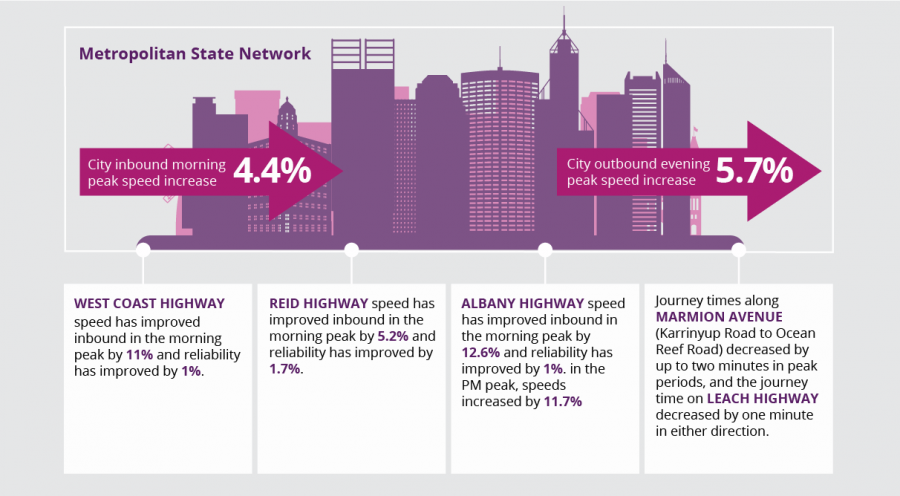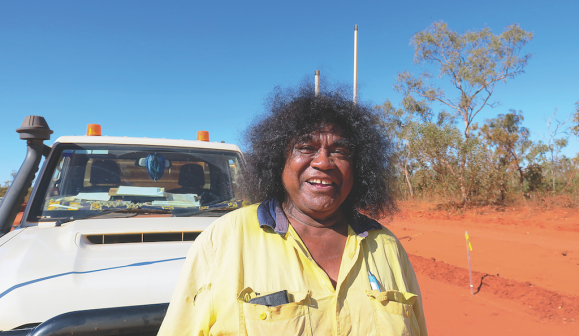
Safety, Health & Wellbeing
Successful Safety Forum Becomes a Regular Event
During the year, we hosted a two-day forum promoting, through speakers and topics, a positive safety culture and providing an opportunity to network and knowledge share....
PC: Hold the Ctrl button and click + to enlarge or - to shrink the text size.
Mac: Hold the Cmd button and click + to enlarge or - to shrink the text size.

Congested roads affect travel time, which impacts on the state’s economy and the wellbeing of Western Australians. The avoidable cost of Perth’s congestion in 2018 was estimated to be $1.6 billion. The Road Network Operations Centre (RNOC) is a purpose- built, world-class facility designed to help manage this congestion, optimise road network safety and performance.
The facility delivers situational awareness and a common operating picture, to enable rapid, effective and data-supported decisions in a real-time environment. It facilitates collaboration with critical first responders to manage operations, emergency incidents and events. With a focus on the customer journey, the RNOC incorporates technological capabilities required to address the current and future road network management needs; which will include operating Western Australia’s first Smart Freeway in 2020.
Addinsight is a bluetooth technology system that uses signals from devices inside motorists’ vehicles to accurately map out journey times along parts of our road network. The information is updated in real-time every 30 seconds, building a historical database over time. Using this rich, real-time source of data, we are able to quickly recognise abnormal traffic conditions on our roads. These are typically due to incidents, which we can respond to more safely and efficiently. This allows the road network to quickly recover from the impacts and get back to normal operation.
We harness and analyse a range of powerful data across our network, systems and third party providers to measure, monitor and understand the performance of our roads. This understanding is crucial for day-to-day operations and planning of our road network, helping us make informed decisions that lead to better outcomes for our customers.
This data comes from more than 3,000 sensors, 400 CCTV cameras, 600 Bluetooth beacons, detectors at traffic signals, internal systems, and WAZE and weather services.
Through new technologies and smarter operations, coupled with traditional civil widening, we will continue to focus on reducing the impact of congestion by optimising the existing infrastructure assets.
Optus Stadium caters for up to 60,000 people during sport events and has the capacity to host up to 90,000 people for concerts. With over 50 events planned at Optus Stadium alone every year, that’s over two million people that need to get to the stadium on different modes of transport every year.
The RNOC plays a key role in making sure that the road journeys to and from major events in Perth are managed safely and efficiently, whether it’s for the sell-out AFL Derby, or over 35,000 people taking part in HBF Run for a Reason, that involves closure of our freeways.
Our teams work relentlessly in the background, together with a wide range of stakeholders, to ensure that the community enjoys their experience.

Overall, customer perception for the whole of network has improved this year compared to last. Notable improvements include; Tonkin Highway North and South, Stirling Highway, Canning Highway and Brookton Highway.

Safety, Health & Wellbeing
During the year, we hosted a two-day forum promoting, through speakers and topics, a positive safety culture and providing an opportunity to network and knowledge share....

REGIONAL EMPLOYMENT
Increased employment opportunities to enhance wellbeing of Aboriginal people is a key commitment for Main Roads. To help us achieve this objective, in collaboration with Nudge...